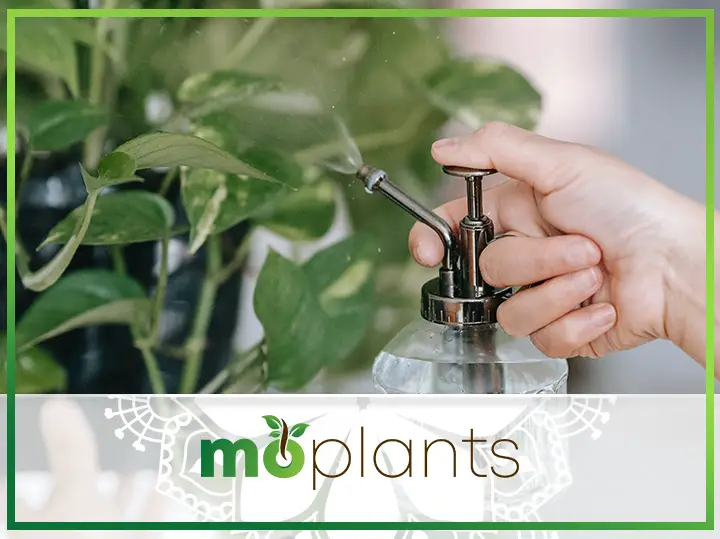Neem oil is a natural pesticide that has long been used as one of the most effective oils to control insects at all stages of development. It coats the leaf, which helps kill most pests’ airways, and leaves a glossy finish.
While it has great benefits, some plants don’t like neem oil because of its smell. The problem is that few people know that neem oil is not for every plant. So, when they spray it on the wrong plant, the direct sunlight hits the plant and ends up burning the leaves and the plant altogether.
Thus, one should avoid using neem oil on these garden plants.
Don’t Use Neem Oil on These Garden Plants
Neem oil is an organic pesticide that is free of toxins and easy to use on plants. Individuals who love gardening use it for their indoor and outdoor gardens. However, there is a correct way to use neem oil. Using it appropriately will benefit your garden and eliminate pests in less than a month.
The right way to use neem oil is to mix it with lukewarm water and some natural soap for a mild mixture. It dilutes the strong neem liquid and makes it plant-friendly. Neem-tolerant plants will benefit from the mixture; however, neem-sensitive plants will most likely cripple and die. Since neem oil is derived from raw neem plants, it contains a natural chemical named azadirachtin. This chemical makes neem oil a strong potion to use as an organic pesticide.
Nevertheless, it is important to ask yourself one major question: is neem oil bad for some plants? Yes, it is. Certain plants don’t like neem oil, and instead of benefitting them, it can kill the plant.
Let’s talk about neem-sensitive plants. Don’t use neem oil on these garden plants:
- Chives
- Basil
- Kale
- Arugula
- Lettuce
- Parsley
- Rue
- Thyme
- Oregano
- Sage
- Dill
- Caraway
- Cilantro
- Pea
- Spinach
- Marjoram
Moreover, there are certain other plants that it can cause damage to. Some examples of plants that should not be treated with neem oil include:
Fruits and vegetables: Neem oil can cause discoloration and damage certain plants’ fruits and vegetables, making them unappealing and inedible.
Begonias, Impatiens, and other sensitive plants: Some plants are more sensitive to neem oil than others and may suffer damage due to treatment.
Plants with a waxy or hairy leaf surface: Neem oil can be difficult to wash off of plants with a waxy or hairy leaf surface and may cause damage or discoloration.
It’s always best to check the label of the neem oil product and consult the manufacturer’s instructions before using it on any plants. In addition, it’s recommended to do a small test area first before applying it to the whole plant.
Neem Oil Can Burn & Kill These Plants
If you’re not careful with neem oil, you can unintentionally burn and kill your plants and cause great damage to your garden. The usual practice of watering and spraying oil on plants is done in the daytime when the sun shines directly on the plants. Most planters think of it as the perfect time to spray neem oil, but that is the biggest mistake one can make.
When the plants are sprayed with neem oil, they need at least an hour for the oil to absorb into the leaves and start its work. At that time, if they are placed directly in the sunlight, it will harm the plant. It will burn and kill the plant. Plants with slow growth and shrubbery should be taken care of when spraying neem oil.
Seedlings can be ruined when sprayed with neem oil and placed under the sun, and it is best to be mindful when spraying neem oil around seedlings. Thus, the best time for spraying your neem-tolerant plants is in the morning and the evening when it’s much cooler.
While neem oil will kill seedlings and cause foliage burns to young plants, it will not kill as many mature plants that have grown strong over the years. However, it might cause them to burn, and the burn might not be noticeable at first but when you spot your plant’s leaves turning brown, know that it is dying.
Final Thoughts
Neem oil is great at killing insects and bringing your garden back to life but make sure you don’t use neem oil on these garden plants mentioned above. The most commonly used way of applying neem oil on plants is spraying them. However, you must be careful with the timing and season. Don’t over-spray your plants, and never spray on plants under direct sunlight. It will burn and kill them.
Neem oil demands consistency, and if you wish to see results, you need to spray neem oil once a week to kill all harmful insects. Now that you know the neem-sensitive and neem-tolerant plants, you are ready to bring your garden to its full potential. Happy gardening!

